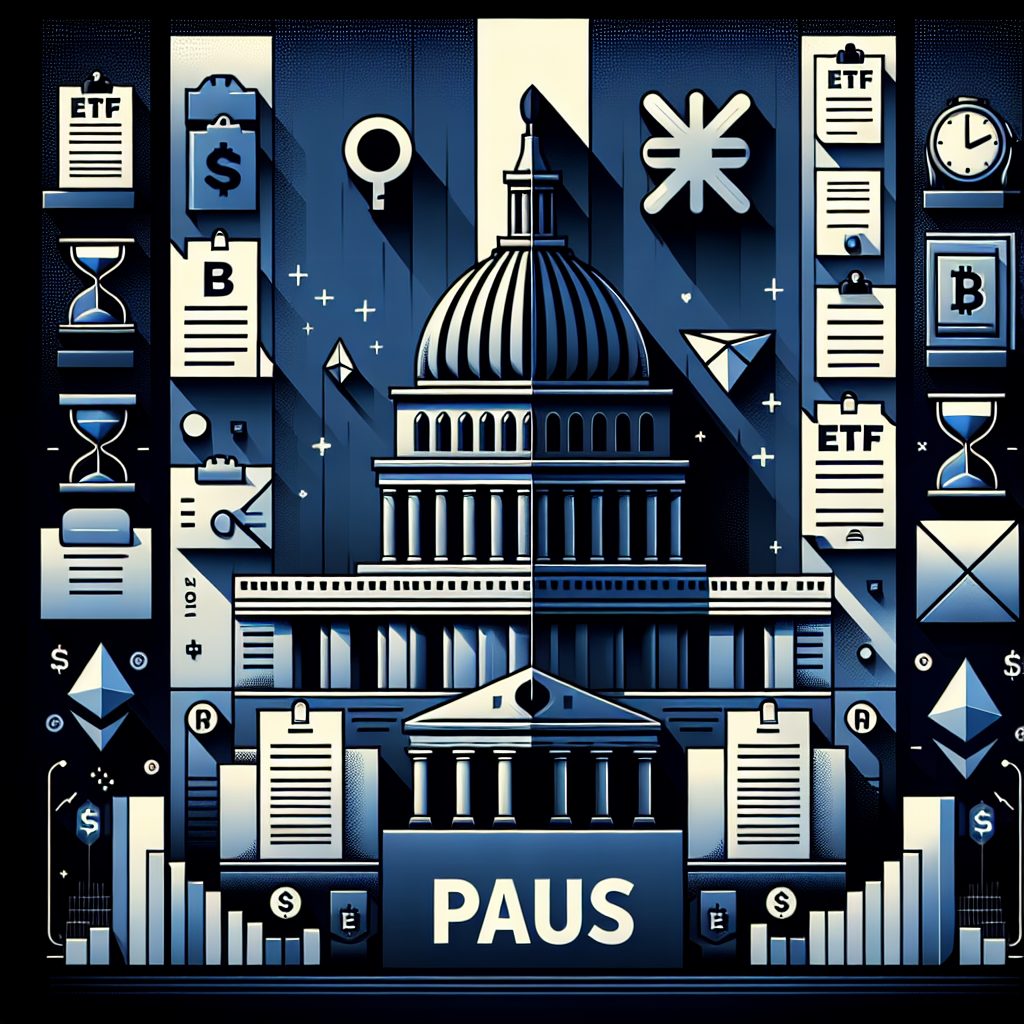The United States government has entered its third week of a partial shutdown, creating a ripple of uncertainty across the financial sector, particularly within the crypto industry. With the US Securities and Exchange Commission (SEC) significantly understaffed, a backlog involving at least 16 crypto exchange-traded fund (ETF) applications has developed, and the longer the shutdown drags on, the more pronounced the implications become for crypto investors and the broader market.
Understanding the US Government Shutdown
The current government shutdown began on October 1st and is a direct consequence of legislative gridlock between Republicans and Democrats over the federal budget. When a budget agreement is not reached by the end of the fiscal year, non-essential government services are suspended, leaving only essential operations intact. Federal agencies, including key regulatory bodies such as the SEC, are forced to operate with a skeleton staff.
The central sticking points remain deeply partisan. Republicans advocate deep spending cuts to address America’s burgeoning national debt—which now exceeds $37.8 trillion, equating to approximately $111,000 per citizen—while seeking increased funds for border enforcement initiatives. Democrats, on the other hand, are pushing to maintain funding for healthcare and extend tax credits that make insurance more affordable, among other priorities. As both the House of Representatives and the Senate are in session only sporadically, there is no clear avenue or timeline to resolve the impasse.
Procedures to End the Shutdown
Resolving the shutdown requires Congress to take action. Lawmakers must pass 12 appropriations bills—each funding different aspects of the federal government—or agree to a continuing resolution, which temporarily maintains current spending levels while more comprehensive negotiations take place. Once Congress acts, the President can sign the legislation, bringing the shutdown to an end. However, political deadlock has thus far persisted, and the longer the shutdown continues, the greater its consequences for pending regulatory decisions, including those critical to the burgeoning crypto market.
Historical Context: Shutdowns and Financial Markets
This current shutdown marks the 11th in US history. The most recent, ending in January 2019, lasted a record 35 days, causing widespread disruption. While some in Washington hope for a quick resolution, others fear this impasse could also stretch into weeks or months, compounding uncertainty for investors and businesses alike.
Congressional Research Service data illustrates that prolonged shutdowns tend to delay or halt regulatory and legislative efforts, especially those reliant on federal agencies operating at full capacity. For the crypto sector, the implications are particularly significant because of the rapid pace at which the industry evolves and the importance of timely regulatory clarity.
The Crypto ETF Bottleneck
Prior to the shutdown, October was anticipated to be a groundbreaking month for the US crypto sector. The SEC was on track to issue decisions on at least 16 pending crypto ETF proposals, with a further 21 applications filed in the opening days of October alone. An ETF, or exchange-traded fund, allows investors to gain exposure to various crypto assets without having to directly purchase or store them, and the proliferation of crypto ETFs is widely seen as a catalyst for mainstream adoption.
However, the ongoing government shutdown has brought the SEC’s approval process to a standstill. As deadlines come and go, no action is taken, leaving applicants and would-be investors alike in limbo. This regulatory bottleneck has broader implications, extending beyond crypto to the financial markets at large by injecting doubt and slamming the brakes on innovation and investment.
Altcoin Season and the Potential for Market Growth
The stalled ETF approvals strike at a particularly critical juncture for the broader crypto market. Analysts and industry leaders had forecast that widespread approval of crypto ETFs—in particular, those offering exposure to a range of altcoins—would herald the next “altcoin season,” a period characterized by rapid growth and price appreciation in alternative cryptocurrencies beyond Bitcoin.
Nate Geraci, ETF analyst and president of NovaDius Wealth Management, suggested recently that ETF approvals would come in a flood once the government shutdown ends, triggering a new wave of investment and potentially opening the “spot crypto ETF floodgates.” Bitfinex analysts projected that should all pending ETFs be approved, the resulting surge in investor participation could lower investment risks and expand market accessibility, increasing institutional and retail activity in altcoins across the board.
However, as the shutdown grinds on, the anticipated altcoin rally remains on hold, leaving traders to wait and see whether Congress can break its stalemate. Some market commentators find irony in the situation, noting that the very dynamics fueling crypto’s growth—such as frustration with government inefficiency and ballooning fiscal debt—are now holding back the next big leap for the industry.
The Stakes for Crypto Investors and the Broader Market
The approval—or further delay—of crypto ETFs is not just a bureaucratic matter. For investors, particularly institutions seeking regulated entry points into the crypto space, ETFs are crucial financial instruments that lower barriers, diversify portfolios, and signal regulatory confidence in the asset class. The inability of the SEC to operate at full capacity due to the shutdown has left billions of potential investment dollars sitting on the sidelines.
Furthermore, the delay compounds uncertainty for both retail and institutional investors, causing volatility in the prices of digital assets as sentiment swings with each political update. The anticipation around ETF approvals has already been priced into some assets, making any news out of Washington a potential market-moving event. Market participants are keenly aware that when the shutdown ends, a backlog of regulatory activity could trigger swift, significant changes in crypto valuations.
Broader Implications for Financial Regulation and Innovation
Beyond immediate investment concerns, the shutdown’s impact on crypto ETFs underscores the fragility of financial innovation in the face of political disruption. Regulatory clarity is a cornerstone of market development; without it, technology-driven sectors like crypto lose momentum, US businesses lose ground to international competitors, and investors may look elsewhere for growth opportunities.
The SEC’s inability to function efficiently serves as a real-time case study in how federal paralysis can curb economic dynamism. As other nations move forward with bespoke crypto regulations and ETF frameworks, industry advocates caution that the US risks falling behind as a global fintech leader.
The Path Forward: What to Watch
With the shutdown showing no signs of an imminent resolution, stakeholders in and beyond the crypto sector are closely monitoring developments on Capitol Hill. The outcome of this impasse will shape the near-term landscape for crypto investment products, and may set precedents for how the US manages the intersection of political gridlock and financial innovation moving forward.
Investors should keep an eye on Congressional negotiations, as any breakthrough could be followed by a rapid succession of SEC decisions on pending applications. Volatility is likely to persist in the short term, but with so many ETF applications queued up, a post-shutdown regulatory surge could unlock significant capital flows into the digital asset space—all hinging on Washington’s ability to restore normalcy to government operations.
Conclusion: A Pivotal Moment for US Crypto
The ongoing US government shutdown has far-reaching implications for the crypto industry, with the fate of 16 ETF applications—and potentially the wider adoption of digital assets—hanging in the balance. As lawmakers battle over spending and policy, the eyes of the crypto world are fixed on Washington, awaiting decisions that could shape the industry’s trajectory for years to come. For now, the SEC’s hands are tied, innovation is paused, and the next great leap for US crypto markets is on hold, at least until Capitol Hill finds a way forward.

















